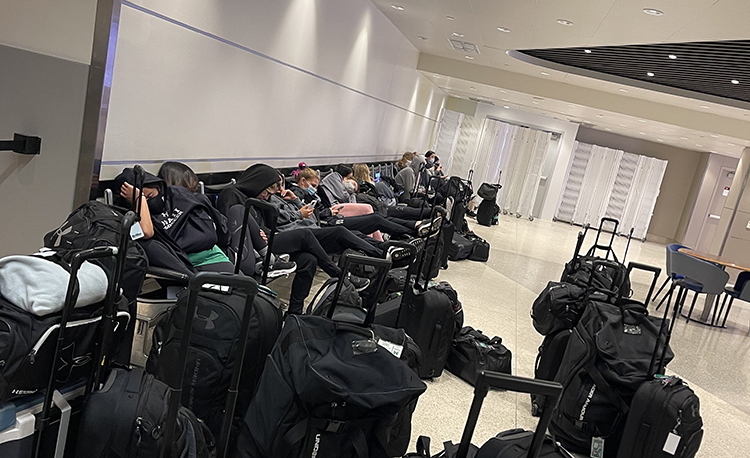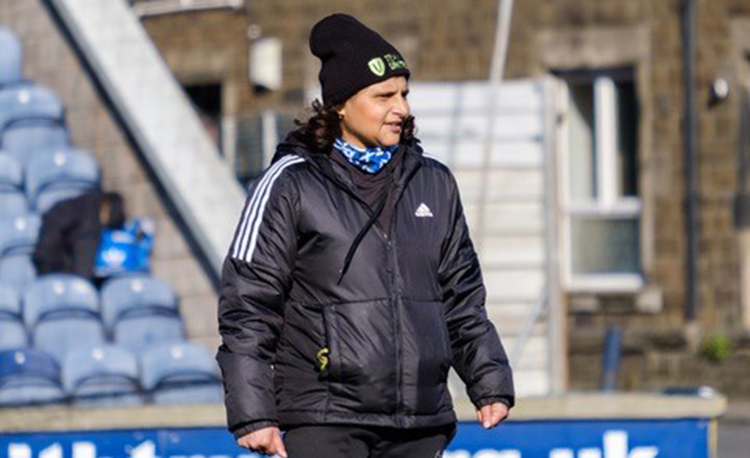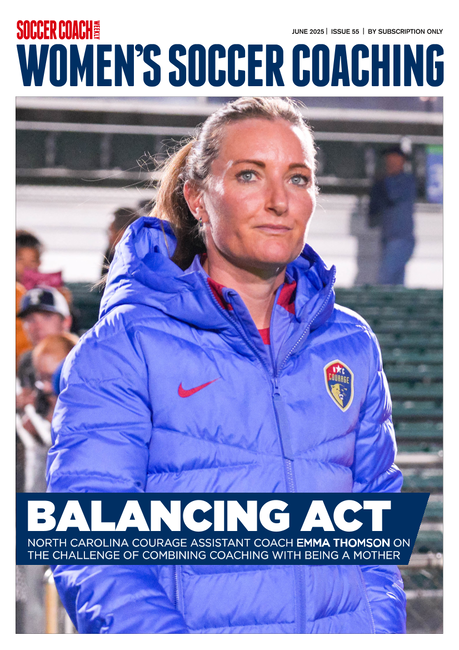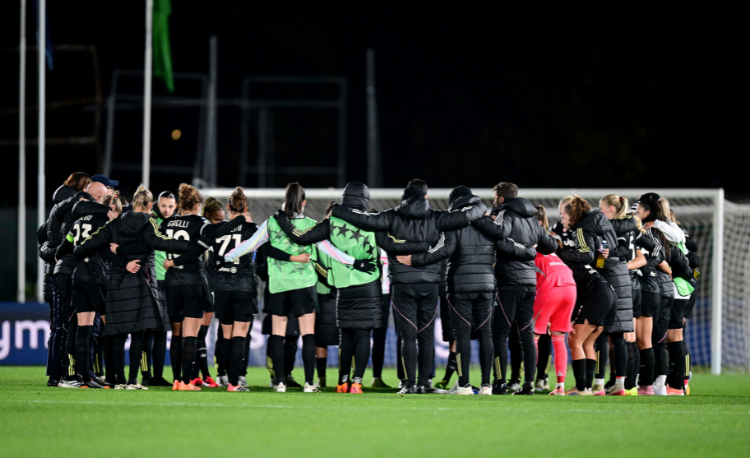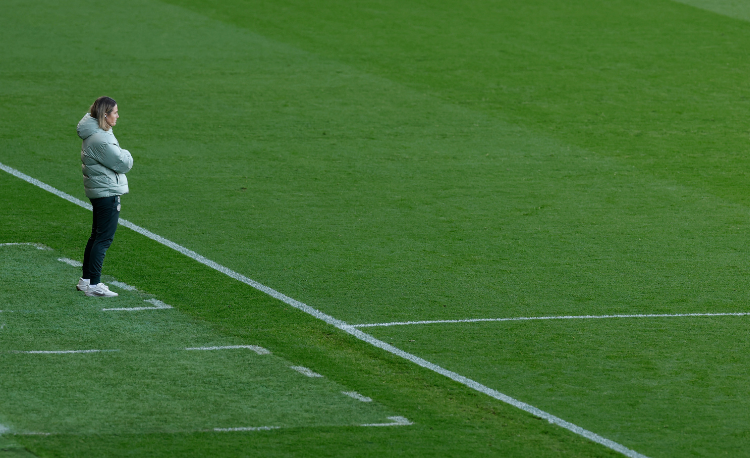You are viewing
1 of your 3 free articles
Recovery position
From sleep hygiene to a tight support network, performance nutritionist Kris Kumari outlines eight key factors in refreshing your players, staff - and you...
Recovery, a multifaceted restorative process relative to time, is a vital piece in the performance puzzle.
The process utilises various strategies to regain and re-establish a player’s physiological and psychological balance, to ensure their welfare, health status and peak performance is maintained.
However, we can sometimes lose sight of the recovery process in coaches and other team staff members (TSM).
They are not immune to the demands and pressures of their roles, which can be wide and varied, with different positional responsibilities within different types of organisational structures and cultures.
Demands of the game
Soccer places metabolic, physiological, physical and technical demands on players, as well as psychological pressures - these can be experienced, to varying degrees, from the elite end down to grassroots.
The demands include training and competition load, congested fixture schedules, timezone changes when travelling, performance pressures, selection anxiety and cultural adaptations.
All of this may lead to acute or chronic injuries, illness, and poor nutritional behaviours or under-fuelling, resulting in relative energy deficiency in sports (REDs) and risk of menstrual disturbance in females.
This may then contribute towards interruption in training and/or competition, under-performance and health implications. Therefore, adequate balance between demands and recovery is essential.
Numerous strategies are employed to achieve this, from compression garments, water immersion, active recovery and sleep hygiene to refuelling and rehydration.
Demands of the role
The ‘team behind the team’ may also face adverse situations - such as work performance pressures, busy schedules and travel - with a multitude of internal and external stressors, such as high-personal expectations, scrutiny from external sources, job insecurity and other work commitments or academic study while working in soccer.
Work-related fatigue, with its extreme manifestation burnout, can be a consequence of chronic interpersonal work-related stressors, while competition periods appear to increase stress levels in coaches leading to burnout.
Increased cortisol levels - a consequence of chronic stress - may increase the risk of anxiety, while psychological stress can also have an influence on immunity.
"An inability to deal with stress affects the quality of coach-player relationships..."
Adding to this, coaches and other staff members with individual key responsibilities will encounter demands related directly to players’ performance, health and wellbeing.
Coaches may have high expectations to produce successful players, win games, how they view their position on the competition ladder, player development and to manage player concerns in a non-win situation.
An inability to deal effectively with stress affects the level of coaching, reducing decision-making capacity and the quality of coach-player relationship. A drop in motivation and emotional exhaustion can also have consequences to personal relationships.
A lack of consideration of recovery steps may have knock-on effects on the supportive player interpersonal relationship and compromise coach performance, with a ripple effect on the organisation as a whole.
The good news is some of the recovery measures can be extrapolated and adapted to individual needs and situations.
Sleep
Sleep plays an essential role in physiological and psychological recovery. It represents one of the many available forms of recovery to recharge body and mind.
Sleep deprivation may impact metabolic and cognitive function, and addressing sleep quality is just as important as addressing sleep quantity.
Basic sleep-hygiene principles, such as sleeping in a cool, dark and quiet environment, reducing screen time in the hours before sleep and keeping regular sleep-wake schedules, can all have positive effects on overall heath and the ability to function effectively the following day.
Travel hygiene
Domestic, continental or international travel, involving time-zone crossings, may result in jetlag, together with travel fatigue. It may also impact sleep patterns, cause gastrointestinal disturbances, affect mood and increase risk of illness.
Break down travel components to pre-, during, and post-travel to create a travel management schedule.
Pre-travel could consist of being well rested and ensuring appropriate food and hydration is planned for by checking food availability or packing snacks and meals. This may improve food choices and allow for planned eating patterns during travel.
Consider a sleep and feeding schedule by mimicking the destination time. This allows both body and mind to adjust to the destination’s timezone, enhancing circadian adaptations - as does adjusting watches to the destination timezone when boarding a flight.
When sleep is not necessary, resting with eyes closed in a relaxed position, focusing on breathing, is recommended. As with Covid-19 guidelines, implementing hand and food hygiene strategies may help lower risk of illness, as well as the intake of adequate fluid, with avoidance of caffeine and alcohol, to maintain euhydration, especially when exposed to dry cabin air.
Nutrition
Nutritional strategies play a vital role in recovery. Skipping meals, irregular eating patterns, and poor food choices lacking in important nutrients, all have implications not only to work performance but also to health.
Consideration should be taken to ensure regular fluid intake, adequate nutrition, and that food choices and eating patterns are balanced throughout the day, for optimal immune function and energy, nourishing body and mind.
Poor immune health, for example, may make a person susceptible to air travel induced upper respiratory tract infection. Matching energy intake to expenditure provides the necessary maintenance of adequate energy throughout the day.
Gut health is also important. Prebiotics and probiotics play a role in immunity and improve gut-barrier integrity for effective nutrient absorption.
A food-first approach is recommended as opposed to supplements - however, during the dark, winter months, vitamin D can be considered.
Overall, good nutrition helps support energy levels, immunity and allows players and coaches to be better equipped to meet cognitive and physical demands.
"Consider a sleep and feeding schedule by mimicking the destination time..."
Exercise and fitness
Fitness and exercise are commonly associated with being a protective health factor, and can serve as a simple and effective strategy to promote resilience, mental wellbeing and better cognitive function, as well as other parameters such as strength and endurance.
Better stress and fatigue tolerance allow work performance pressures to be less impactful, achieving a recovery stress balance, lower emotional exhaustion and reducing the risk of chronic and psychological fatigue.
Diaphragmatic breathing exercises, and postural and neural stretching, may be useful to maintaining a relaxed state, reducing physiological and psychological stress.
Social support system
Ways in which stress may be experienced include psychological responses such as anger, frustration and feelings of self-doubt.
While some people may be resistant to seeking social support, it has been associated positively with overall health, enhancing mental wellbeing, alleviating psychological distress and managing stressors experienced.
With the potential of coach-player relationship breakdown in this situation, a support structure could be considered an important part of recovery as a buffering effect and to enhance coping abilities.
Approach
A combination of bio-psycho-social recovery processes requires an individualised, multi-dimensional approach, according to the situation-specific needs of coaches and staff.
It is necessary to embrace it to not only provide a ’role modelling’ behaviour to players but to ensure coaches and other staff members invest in recovery processes to ultimately benefit their own career longevity, health and performance.
Related Files
Newsletter Sign Up
Newsletter Sign Up
Discover the simple way to become a more effective, more successful soccer coach
In a recent survey 89% of subscribers said Women's Soccer Coaching makes them more confident, 91% said Women's Soccer Coaching makes them a more effective coach and 93% said Women's Soccer Coaching makes them more inspired.
*includes 3 coaching manuals
Get Inspired
All the latest techniques and approaches
Women's Soccer Coaching offers proven and easy to use soccer drills, coaching sessions, practice plans, small-sided games, warm-ups, training tips and advice.
We've been at the cutting edge of soccer coaching since we launched Soccer Coach Weekly in 2007, creating resources for the grassroots youth coach, following best practice from around the world and insights from the professional game.
